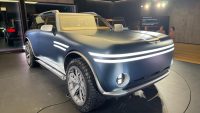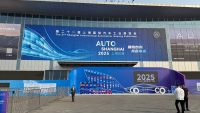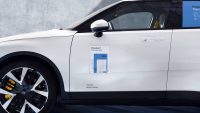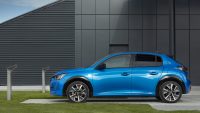The CEO of British supercar manufacturer McLaren has called for any future UK Government to provide a ‘strategic roadmap for investment’ in future powertrain technologies, stating that the current EV supply chain isn’t equipped to deal with the demands of high performance vehicles.
‘It’s time we regained confidence in our sector by investing in a world-class domestic supply-chain to support the development of tomorrow’s high-performance vehicles,’ he explained during a discussion at the SMMT International Automotive Summit this week.
In a rallying cry to the wider automotive sector, Leiters states that the UK was once the world’s largest vehicle exporter and that, even to this day, it remains home to ‘some of the world’s most admired performance car brands’.
However, the McLaren CEO goes on to point out that the shift to pure EVs is both costly and risky for low volume producers of specialist products, claiming that demand for pure EV supercars ‘remains extremely low’.
This is due to the fact that the technology is not sufficiently mature to rival the performance of today’s hybrid and combustion engine offerings, which Leiters claims makes it a risky investment both for OEMs and their suppliers, and is currently restricting the UK’s progress in this field.
The McLaren boss stops short of going into detail about the sort of financial incentives or tax breaks his industry requires, only stating that government support is essential in order to ‘de-risk’ the transition to electrification.
‘Today, our hybrid McLaren Artura powertrain has 64% UK content. If this car was a pure EV, the UK content of the powertrain would reduce to 13% because we cannot currently source the relevant componentry in the UK,’ Letters said during the discussion.

McLaren predicts that hybrid vehicles will account for the majority of supercars sold throughout this decade, but new legislation being introduced by EU, which demands manufacturers to be more transparent about the origins of battery raw materials and their carbon footprint, will only increase the need to locally-source high-performance battery technology, according to the McLaren CEO.
‘Developing a pure EV McLaren supercar, which can rival – if not exceed – the performance and driver-engagement of today’s supercars, could help drive the transition towards pure electrification among mass-market customers,’ he says.
A paper published earlier this year by the UK Business and Trade Committee stated that the UK Government should consider ‘targeting at least 90% of the UK’s annual demand for batteries to be met from domestic supplies by 2030’ if it is to remain competitive with foreign rivals.

McLaren CEO Michael Leiters speaks at the SMMT International Automotive Summit
In 2023, it also published its Advanced Manufacturing Plan, which included at £4.5 billion package of targeted funding for manufacturing, tax cuts and business environment measures, of which £2 billion of capital and R&D funding was reserved for zero emission vehicles, batteries and their supply chains to the year 2030.
However, the UK is still falling short of its European and global counterparts when it comes to the construction of battery-producing ‘gigafactories’, which the UK’s Faraday Institution (an advisor to the Government) says is essential to meet future demand.
‘The UK needs to move quickly to secure investment in new gigafactories. By 2030, around 100 GWh of supply will be needed in the UK to satisfy the depend for batteries for private cars, commercial vehicles, heavy goods vehicles, buses, micromobility and grid storage,’ it wrote in June 2022.
Currently, the UK still only has one gigafactory, compared to over 100 operational sites in China, for example.
‘In the future, a thriving UK supply-chain specialising in cutting-edge, high energy density cells would not only support supercar production but also other advanced manufacturing needs such as vertical take-off aircraft and drones,’ Leiters adds.


































